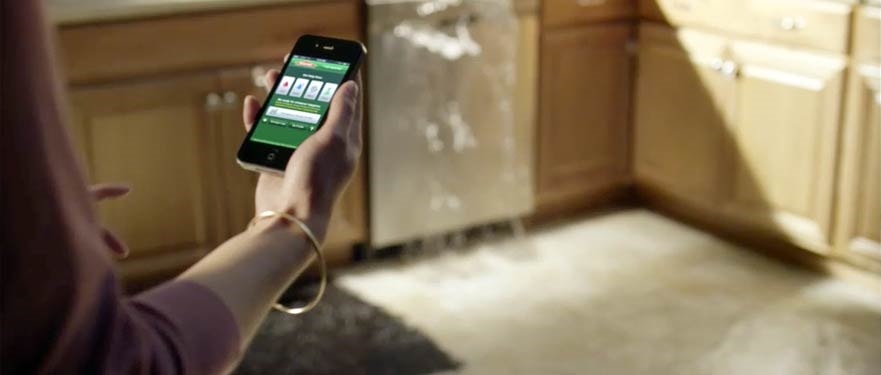
Water Damage Emergency Tips
What you can do until help arrives
Water Tips | Fire Tips | Biohazard Tips | Mold Tips
When water damage happens, do you know what to do next? Here are some do's and don'ts of water clean up when disaster strikes.
- Do's
- Shut off the water source as quickly as possible and contact a qualified professional to fix/stop the water source.
- Turn off the circuit breaker for the affected wet areas when it is safe to access the panel to ensure everyone is safe from electrical shock.
- Remove as much excess water as possible through mopping or blotting if possible.
- Move any valuable or sensitive items to a dry place to prevent damage.
- Don'ts
- Do not enter the affected area if there is a chance for electrical equipment being exposed to the water to avoid electrical shock hazards.
- Do not use your household vacuum to remove water. This could cause electrical shock and/or damage to the vacuum cleaner.
- Do not turn on ceiling fixtures if the ceiling is wet or sagging from retained water.
- Do not try to extract water without a certified professional as improper drying or extraction can lead to microbial growth in the future.
Once all water has been disconnected and the appropriate professional repairman has been notified, call your local SERVPRO® of Coffee, Franklin, and Warren Counties to begin the water extraction process, and make it like it never even happened.
Have A Water Damage Emergency? Call (931) 723-8088
What To Do After Flooding
- Remove excess water by mopping and blotting.
- Wipe excess water from wood furniture after removal of lamps and tabletop items.
- Remove and prop wet upholstery and cushions.
- Place aluminum foil or wood blocks between furniture legs and wet carpeting.
- Turn air conditioning on for maximum drying in summer.
- Remove colored rugs from wet carpeting.
- Remove art objects to a safe, dry place.
- Gather loose items from floors.
What NOT To Do After Flooding
- Don't leave wet fabrics in place. Hang furs and leather goods.
- Don't leave books, magazines or other colored items on wet carpet or floors.
- Don't use your household vacuum to remove water.
- Don't use television or other household appliances.
- Don't turn on ceiling fixtures if ceiling is wet, and keep out of rooms where ceilings are sagging.



 24/7 Emergency Service
24/7 Emergency Service


